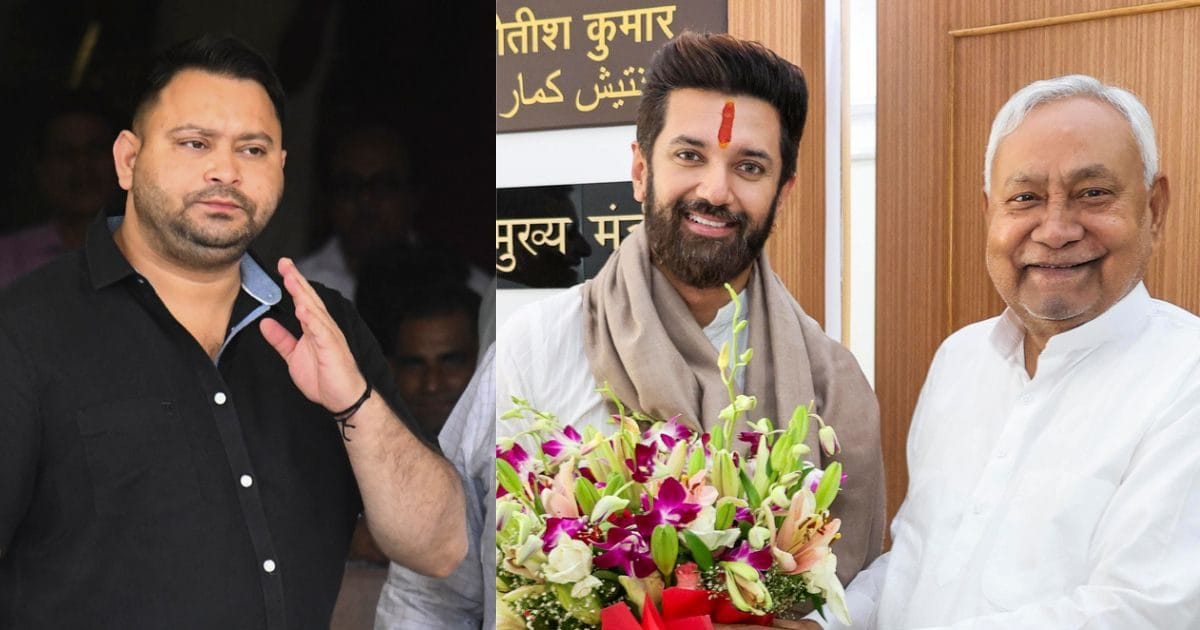If you boycott the Grand Alliance, will there be no Bihar election? What does the law say, has this happened before? Last updated: July 24, 2025, 18:35 IST, by law, even if all the major opposition parties refuse to dispute elections, the election will not be canceled, but it can weaken the democratic process. Many times such cases have risen. Let’s investigate it … Read more, Tejaswi Yadav talked about election. Highlights Tejashwi Yadav talked about the Bihar election boycott. The election cannot be stopped, even if the opposition is boycott. The Supreme Court has also made it clear many times in this case. In Bihar, there was a Rukus of the Special Intensive Revision (SIR) that improved the voters list. Tensions are also more because the Electoral Commission said that 56 lakh voters are not available. That is, their name is set to be cut. Tejashwi Yadav, Rahul Gandhi claims that votes are stolen. Tejashwi, while moving a step forward, even said that if it remains a similar situation, what is the use of the election in the election? He even announced to boycott the election. In such a situation, if all the parties involved in the Grand Alliance are not an election? What does the law say? Did this happen in a state of India earlier? First of all, if elections are to be held in a state and all the most important opposition parties refuse to dispute elections, this situation can create a complex challenge for democracy and constitutional system. But what will not happen? To understand this, we must see the Constitution. Article 324 of the Constitution gives the Electoral Commission a teacher to hold elections, to determine the process, control it. No one can stop it. The Electoral Commission states that the election must be a fair. You have to be repeated, that is, what he wants, he has to get an equal chance. What if the opposition refuses to contest elections? The work of the Electoral Commission is to perform elections on time. Regardless of whether a party takes a hand in it or not. If only the ruling party, that is, the party running the government, increases its candidate in the election, or even if there is an unstable candidate, it is the responsibility of the commission to carry out elections. There is no provision for cancellation of elections under the Constitution, as long as there is no extraordinary situation such as violence or natural disaster. It is clear that even if the whole Grand Alliance also boycott elections, there will be an election, no prohibition on it can be. If only the people of the ruling party stand, and there was no candidate, they will all win unopposed. Can the Supreme Court stop such elections? The opposition can go to the Supreme Court and say that it is unconstitutional to keep elections without competition. He could call Jaya Bachan vs Union of India case, in which the Supreme Court said it was necessary to create transparency and ensure representation. But there can be no such thing to stop the election here. There was a situation in the 1989 Mizoram meeting election, and the Supreme Court clearly said that the election could not be banned. Has this happened before? There is no direct example of such a situation in India, where all the most important opposition parties have refused to dispute elections together. But there are some cases from which you will understand it directly. 1989 Mizoram Meeting Elections: Mizo National Front (MNF) boycotted the election in protest against the congressional government. As a result, the congress has already won 40 seats, but the opposition parties later challenged it. The case went to the Supreme Court, where the court said the election was not canceling the election, provided the process is valid. It sits perfectly on Bihar. Jammu and Kashmir elections of 1999: Some opposition parties, especially separatist groups, boycotted the election. Despite this, elections were held and the national conference formed the government. The case did not go to the Supreme Court, but it shows that the boycott does not cancel the election. Because the government was maintained. 2014 Haryana Panchayat election: Opposition parties In some areas, the election against education and income storms boycotted. Nevertheless, the Electoral Commission held elections and was considered valid. However, due to the protest march, there was a major grip in the voting percentage, as voters who voted for opposition parties did not come out. The Supreme Court’s attitude said the Supreme Court at the trial of the Peepal Union for the Union of India 2013 case that participation and competition in the election is the basis of democracy. However, the court also made it clear that the Electoral Commission has the right to decide how to hold elections. The boycott of a boycott does not cancel the election process until it has been violated by constitutional standards. About author Gyanendra Mishra, Mr. Gyanendra Kumar Mishra, is associated with hindi.news18.com. Work on the homepage. He has 20 years of rich experience in journalism. He started his career with Amar Ujala and then worked for ‘Hindustan Times Group … Read more Mr. Gyanendra Kumar Mishra is associated with hindi.news18.com. Work on the homepage. He has 20 years of rich experience in journalism. He started his career with Amar Ujala and then worked for ‘Hindustan Times Group … Read more Location: Patna, Bihar Home Knowledge Grand Alliance Boycott, will there be no Bihar election? What does the law say
If you boycott the Grand Alliance, will there be no Bihar election? What does the law say
